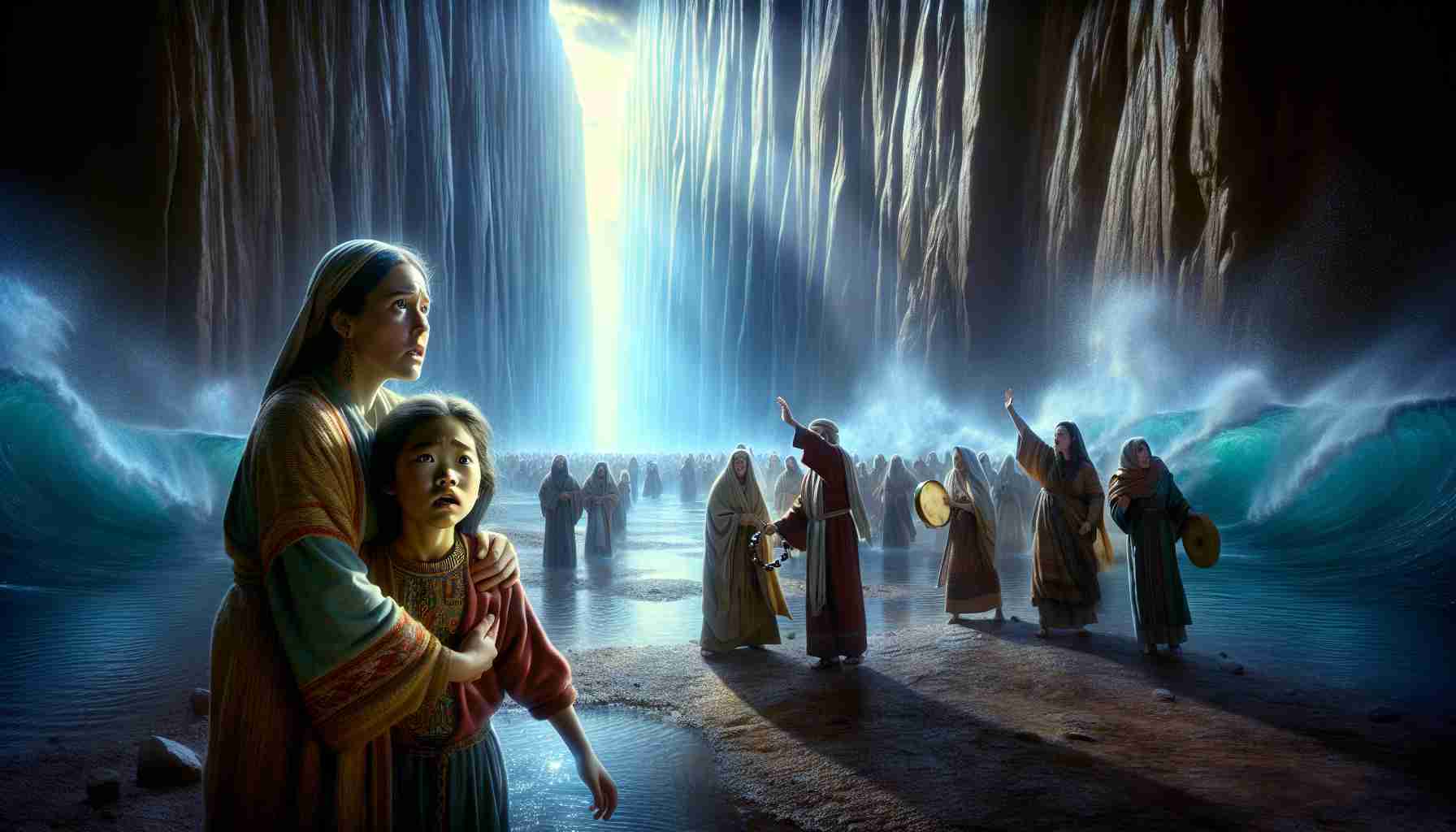

The sun was just starting to rise behind the clouds of dust left by thousands of tired feet. I was one of them. My name won’t be found in any scrolls, but I was once a servant in Egypt, a slave with calloused hands and a mouth too fearful to speak. That morning, though, my hands felt like wings, and my mouth finally sang.
Only a day before, we had walked through the sea.
I can barely make sense of it even now. Water, piled high like cliffs, stood on either side of us as we crossed the sea floor. Mud didn’t stick to our feet. My younger brother kept asking if the fish could see us. I didn’t have an answer. I was too scared to look sideways. Just ahead—always just ahead—I watched Moses’ staff rise above the crowd. That staff had touched the waters and opened the path. That staff had, somehow, brought us life.
But behind us, death came roaring. The Egyptian army, the same ones who whipped us and beat our fathers, charged after us. My heart nearly broke when I heard the pounding of their chariots. I thought freedom had been a cruel trick.
Then the walls of water collapsed.
I will never forget that sound. It was louder than thunder, like the sky itself breaking open. The waves swallowed the Egyptians before they could reach us. The sea closed as if it had never parted at all.
And then, a silence deeper than anything I’ve known.
But it didn’t last. That silence was broken by singing—first from Moses, and then from all of us. I found myself chanting words I’d never rehearsed but somehow knew in my bones: “The Lord is my strength and my song… He has become my salvation.” It was as if the song was not ours but had been waiting in the wind all along, ready to rise when we finally could.
And then Miriam stepped forward.
Miriam—the sister of Moses, the prophetess, the woman who had hidden her baby brother in the reeds—she picked up a tambourine. Where she’d kept it I’ll never know. But when she shook it, the sound was like freedom itself. Women rushed to her, myself included, and we danced. For joy, for fear released, for the miracle behind us.
That moment changed me. I had always thought of prayer as something far away—meant for prophets, for leaders like Moses. But in that dance, I understood that even someone like me, someone who had only ever obeyed the whip, could praise God. Could be heard by Him.
We were not just out of Egypt—we were reborn.
Since that day, every time I sing, I remember the sea and the song. Because it wasn’t just about escape. It was about learning that God sees us, even in slavery. And when God rescues, He doesn’t just give freedom—He gives a voice to the voiceless.
And I found mine on the other side of the sea.
The sun was just starting to rise behind the clouds of dust left by thousands of tired feet. I was one of them. My name won’t be found in any scrolls, but I was once a servant in Egypt, a slave with calloused hands and a mouth too fearful to speak. That morning, though, my hands felt like wings, and my mouth finally sang.
Only a day before, we had walked through the sea.
I can barely make sense of it even now. Water, piled high like cliffs, stood on either side of us as we crossed the sea floor. Mud didn’t stick to our feet. My younger brother kept asking if the fish could see us. I didn’t have an answer. I was too scared to look sideways. Just ahead—always just ahead—I watched Moses’ staff rise above the crowd. That staff had touched the waters and opened the path. That staff had, somehow, brought us life.
But behind us, death came roaring. The Egyptian army, the same ones who whipped us and beat our fathers, charged after us. My heart nearly broke when I heard the pounding of their chariots. I thought freedom had been a cruel trick.
Then the walls of water collapsed.
I will never forget that sound. It was louder than thunder, like the sky itself breaking open. The waves swallowed the Egyptians before they could reach us. The sea closed as if it had never parted at all.
And then, a silence deeper than anything I’ve known.
But it didn’t last. That silence was broken by singing—first from Moses, and then from all of us. I found myself chanting words I’d never rehearsed but somehow knew in my bones: “The Lord is my strength and my song… He has become my salvation.” It was as if the song was not ours but had been waiting in the wind all along, ready to rise when we finally could.
And then Miriam stepped forward.
Miriam—the sister of Moses, the prophetess, the woman who had hidden her baby brother in the reeds—she picked up a tambourine. Where she’d kept it I’ll never know. But when she shook it, the sound was like freedom itself. Women rushed to her, myself included, and we danced. For joy, for fear released, for the miracle behind us.
That moment changed me. I had always thought of prayer as something far away—meant for prophets, for leaders like Moses. But in that dance, I understood that even someone like me, someone who had only ever obeyed the whip, could praise God. Could be heard by Him.
We were not just out of Egypt—we were reborn.
Since that day, every time I sing, I remember the sea and the song. Because it wasn’t just about escape. It was about learning that God sees us, even in slavery. And when God rescues, He doesn’t just give freedom—He gives a voice to the voiceless.
And I found mine on the other side of the sea.